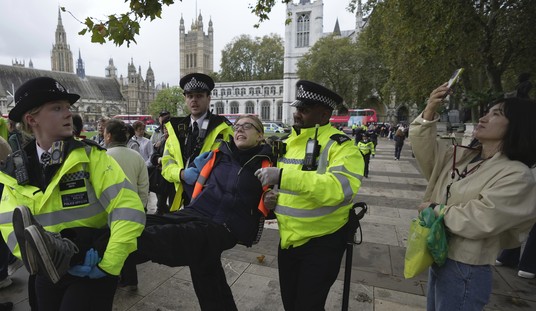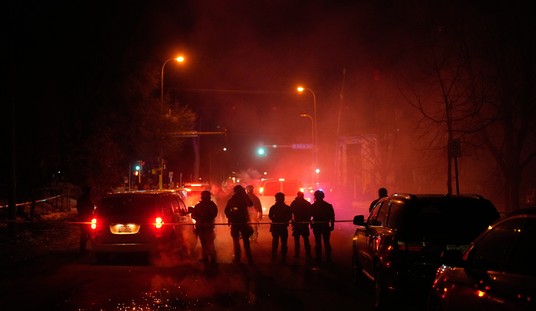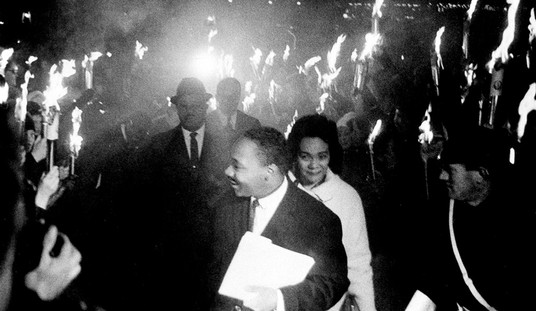Jesse Jackson Jr. shares his thoughts on how to fix the economic crisis, solve the jobs problem, end state government deficits, and save the republic:
Jackson called for full government employment of the 15 million unemployed and said that Obama should “declare a national emergency” and take “extra-constitutional” action “administratively” — without the approval of Congress — to tackle unemployment.
“I hope the president continues to exercise extraordinary constitutional means, based on the history of Congresses that have been in rebellion in the past,” Jackson said. “He’s looking administratively for ways to advance the causes of the American people, because this Congress is completely dysfunctional.”
What could go wrong?
http://www.youtube.com/watch?v=_LEwP0UeMpo
Although Jackson’s idea of basically sending checks to individuals, states, and cities is interesting, the most notable aspect of Jackson’s proposal is the underlying notion that the federal government can simply create the money to employ everyone and everything by printing it. Only moderately more fascinating is his theory that the president has some overarching authority against which neither the states nor Congress can “rebel.” Both notions are two sides of the same coin.
While many people would dismiss Jesse Jackson Jr. as a crackpot, he apparently takes himself seriously. So do the “Occupy” protesters, many of whom are seriously talking about taking down the system and creating revolutionary change with a straight face. Statism has now found a voice. After lurking in the shadows, bookroom discussions, and cafes for years it is once again out in the public view, proud and loud.
Jackson and Occupy have articulated the antithesis of the Tea Party call to end big government. In the Occupy and Jackson world, the crisis now justifies extraordinary government measures to enforce “fairness” and mandate employment by any means necessary. By contrast the Tea Party believes in reducing the size of Washington and returning the power of decision to the states. Someone is in “rebellion,” the only question is who.
In the ideological arena at least, the questions are set. Limited government vs. unlimited government. Lower taxes vs. state ownership of the means of production. Choose only one and make sure all your answers are clear and legible on the sheet. While neither ideology is likely to triumph completely over party machineries which are (almost thankfully) focused on grasping at spoils, the contrast between these two world views will provide the backdrop for the electoral struggles of 2012.
Voters have watched for months to see to what extent Tea Party ideas would recast the GOP. The answer now seems to be: to some extent. Similarly, the political battle over the president’s jobs bill will indicate how far to the Left the crisis can push the Democrats. That question is still unanswered.
But the likelihood is now that instead of a contest between a Bill Clinton-like candidate against a Repubican Mitt Romney-like candidate in 2012, it will feature a face off between Obama and a Republican candidate with at least some Tea Party like features. The issue will be put. And while no resolution can be expected in 2012 itself, such a face off would mean a redrawing of the intellectual lines for some time to come. The significance of Jesse Jackson Jr.’s ideas is not that they are on the agenda, but that they may one day be. They are a preview of how the confrontation lines may be drawn.
Now the question is: what is the way out?
Storming the Castle at Amazon Kindle for $3.99
No Way In at Amazon Kindle $3.99, print $9.99
Tip Jar or Subscribe for $5










Join the conversation as a VIP Member